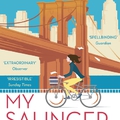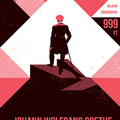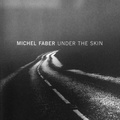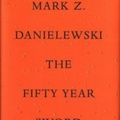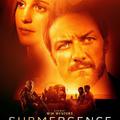Lewis Carroll: Alice's Adventures in Wonderland

I’m pretty sure that virtually everybody knows this book – even I knew it to the extent you can know a book without actually reading it – therefore I don’t go into details as to its plot. The gist is that one day Alice notices a bizarre rabbit in the fields, and since she happens to be bored, she follows the rabbit down inside his hole. After a seemingly endless free-fall Alice finds herself in an extraordinary world where, depending on what she eats and drinks, she sometimes gets unbelievably big, sometimes gets almost unnoticeably tiny. Between two size-changes, she encounters the weirdest humans, animals and anthropomorphic creatures, and engages in various activities with them, e.g.: she attends a mad tea-party, and an unusual croquet-match where the players use flamingo-clubs to hit the hedgehog-balls.
I could say several good things about this book – for instance, reading about Alice’s adventures is indeed highly entertaining in itself, and it’s also worth noting that several of the book’s characters and episodes have since become iconic both in „high” and „popular” culture. However, for me, Carroll’s linguistic peculiarities are the most interesting and exciting parts of the book.
As soon as Alice arrives in Wonderland, language starts to work differently than „above”, and the rules which seemed evident and simple in the outside world are not evident at all down in Wonderland. And this is also true the other way around: certain words which are not correct in the outside world – despite the fact that they are „created” in a logical way – are correct in Wonderland. Alice soon notices this peculiarity, e.g. when she tries to recall what she learned at school, she realizes that the simplest facts and details have escaped her mind, and the nursery rhymes and songs she knew by heart before now resurface in her mind as a bunch of jumbled sentences.
The fact that language doesn’t obey Alice anymore (or that it follows different rules) provides Carroll with a wonderful opportunity to entertain the reader with witty puns and funny little nursery rhymes. These are funny indeed, but I was more interested in the questions these word plays raise than in the word plays themselves. The question I mean – which is referred to or downright asked more than once in the book – is whether it’s language which determines (constrains) what can be said, or every thought can be adequately and easily expressed since language will adapt to the thought one wants to put into words. (At one point this question is raised in a very direct fashion: when Alice is informed in so many words that the meaning of the sentences „I say what I think” and „I think what I say” – despite the popular misconception – is not the same at all.)
The book doesn’t answer the questions it raises, however, it amply illustrates the way language works and it comes up with a lot of interesting examples about the question: when does a sentence mean something, and what makes a sentence mean something at all? For instance, when Alice attends the tea-party and someone offers her some wine, Alice replies indignantly that she doesn’t see any wine anywhere, and that in her opinion, it’s not too polite to offer something to someone which isn’t on the table anyway. This all comes down to this: even though the host’s sentence was meaningful in itself, it related to something which was unavailable at the moment and in that particular situation, this made the sentence impolite – or we may say: improper, incorrect or meaningless.
And the novel is full of delightful episodes and thoughts like this, and I find these exceedingly exciting – and moreover, this kind of linguistics is accessible to everyone. (I happen to find this more interesting than, say, the satiric side of the novel, because even though I know that Carroll makes fun of several real people, I’m not familiar enough with the contemporaneous English public life to be able to spot these persons in the book. And as regards the parodies of poems, I recognized the original of only a single parody.) So I’m planning to read the sequel soon – I’ve been in love with the book’s title (Through the Looking Glass) for a long time, and it’s also mentioned in one of my favourite novels, The New York Trilogy (not surprisingly, in connection with meaning, language and linguistics), so I’m very curious to find out what Carroll has to say about the connections between language and thought in that book.
I could say several good things about this book – for instance, reading about Alice’s adventures is indeed highly entertaining in itself, and it’s also worth noting that several of the book’s characters and episodes have since become iconic both in „high” and „popular” culture. However, for me, Carroll’s linguistic peculiarities are the most interesting and exciting parts of the book.
As soon as Alice arrives in Wonderland, language starts to work differently than „above”, and the rules which seemed evident and simple in the outside world are not evident at all down in Wonderland. And this is also true the other way around: certain words which are not correct in the outside world – despite the fact that they are „created” in a logical way – are correct in Wonderland. Alice soon notices this peculiarity, e.g. when she tries to recall what she learned at school, she realizes that the simplest facts and details have escaped her mind, and the nursery rhymes and songs she knew by heart before now resurface in her mind as a bunch of jumbled sentences.
The fact that language doesn’t obey Alice anymore (or that it follows different rules) provides Carroll with a wonderful opportunity to entertain the reader with witty puns and funny little nursery rhymes. These are funny indeed, but I was more interested in the questions these word plays raise than in the word plays themselves. The question I mean – which is referred to or downright asked more than once in the book – is whether it’s language which determines (constrains) what can be said, or every thought can be adequately and easily expressed since language will adapt to the thought one wants to put into words. (At one point this question is raised in a very direct fashion: when Alice is informed in so many words that the meaning of the sentences „I say what I think” and „I think what I say” – despite the popular misconception – is not the same at all.)
The book doesn’t answer the questions it raises, however, it amply illustrates the way language works and it comes up with a lot of interesting examples about the question: when does a sentence mean something, and what makes a sentence mean something at all? For instance, when Alice attends the tea-party and someone offers her some wine, Alice replies indignantly that she doesn’t see any wine anywhere, and that in her opinion, it’s not too polite to offer something to someone which isn’t on the table anyway. This all comes down to this: even though the host’s sentence was meaningful in itself, it related to something which was unavailable at the moment and in that particular situation, this made the sentence impolite – or we may say: improper, incorrect or meaningless.
And the novel is full of delightful episodes and thoughts like this, and I find these exceedingly exciting – and moreover, this kind of linguistics is accessible to everyone. (I happen to find this more interesting than, say, the satiric side of the novel, because even though I know that Carroll makes fun of several real people, I’m not familiar enough with the contemporaneous English public life to be able to spot these persons in the book. And as regards the parodies of poems, I recognized the original of only a single parody.) So I’m planning to read the sequel soon – I’ve been in love with the book’s title (Through the Looking Glass) for a long time, and it’s also mentioned in one of my favourite novels, The New York Trilogy (not surprisingly, in connection with meaning, language and linguistics), so I’m very curious to find out what Carroll has to say about the connections between language and thought in that book.

